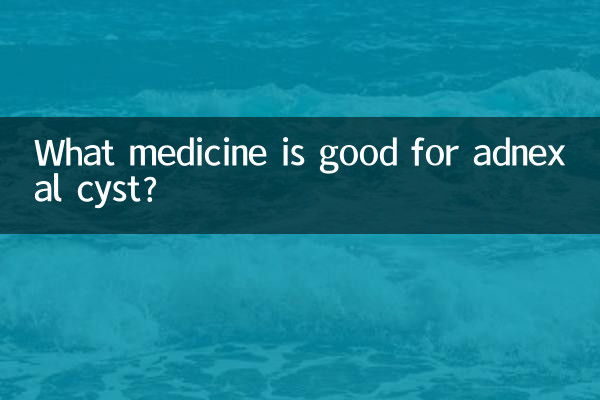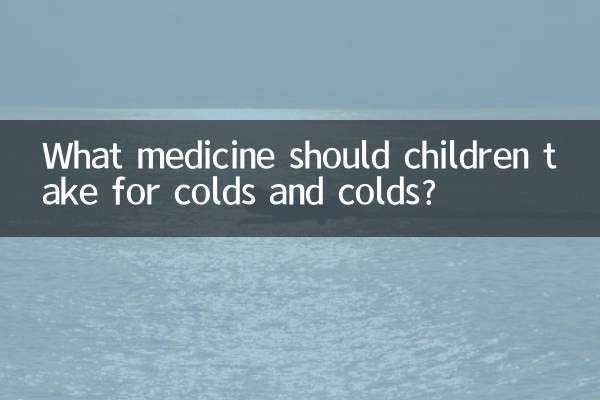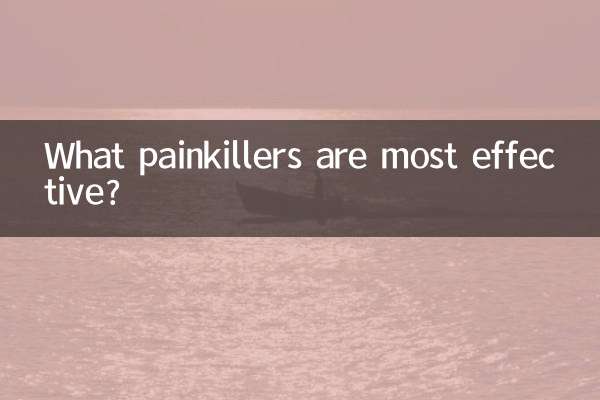What medicine is good for adnexal cyst?
Adnexal cyst is one of the common gynecological diseases in women, usually referring to cystic lesions in the ovary or fallopian tube area. After diagnosis, many patients are concerned about whether medication is needed and how to choose medication. This article will combine the hot topics and hot content on the Internet in the past 10 days to provide you with detailed answers to the drug treatment options for adnexal cysts and provide relevant data for reference.
1. Common types of adnexal cysts and whether medication is needed

Adnexal cysts are divided into two types: physiological and pathological. Whether medication is needed depends on the nature of the cyst:
| Cyst type | Features | Whether medication is needed |
|---|---|---|
| physiological cyst | Such as corpus luteum cyst and follicular cyst, which usually disappear on their own after 2-3 menstrual cycles. | Generally no medication is required and can be observed |
| pathological cyst | Such as chocolate cyst, serous cystadenoma, etc., which may persist or increase in size | Medication or surgery is required depending on the situation |
2. List of commonly used drugs for adnexal cysts
According to recent gynecological clinical guidelines and doctor recommendations, drug treatments for adnexal cysts mainly include the following categories:
| drug type | Representative medicine | Applicable situations | Course of treatment |
|---|---|---|---|
| short-acting contraceptive pill | Yasmin, Ma Fulong | Functional cysts, inhibiting new cyst formation | 3-6 months |
| progesterone drugs | Dydrogesterone, progesterone | Regulate endocrine and promote cyst absorption | 1-3 months |
| GnRH agonist | Lupron, goserelin | Endometriosis cyst (chocolate cyst) | 3-6 months |
| Chinese medicine preparations | Guizhi Fuling Capsules, Hongjin Xiaojie Tablets | Adjuvant treatment, promoting blood circulation and removing blood stasis | 1-3 months |
3. Precautions for drug treatment
1.A clear diagnosis must be made before medication is administered: Exclude the possibility of malignant tumors through B-ultrasound, tumor markers and other examinations.
2.Regular review is important: Even if you take medicine, you should review B-ultrasound every 1-2 months to observe changes in cysts.
3.Pay attention to drug side effects: For example, birth control pills may cause nausea and breast tenderness; GnRH agonists may cause symptoms of low estrogen.
4.Do not buy medicines by yourself: All drugs should be used under the guidance of a gynecologist to avoid improper use of drugs aggravating the condition.
4. Recent hot discussions: Integrated traditional Chinese and Western medicine treatment of adnexal cysts
According to the hot content on the Internet in the past 10 days, regarding the treatment plan for adnexal cysts, the combination of traditional Chinese and Western medicine has received widespread attention:
| treatment plan | Advantages | Things to note |
|---|---|---|
| Western medicine + Chinese medicine | Western medicine controls symptoms, while traditional Chinese medicine regulates physical fitness and reduces recurrence. | Chinese and Western medicines need to be taken 2 hours apart |
| Drugs + Physiotherapy | Physical therapies such as infrared irradiation can promote drug absorption | Need to be carried out in professional institutions |
| Drugs + Dietary Regulation | Avoid spicy foods and consume more high-fiber foods | Avoid eating hormone-containing health products |
5. Under what circumstances should surgery be considered if medicine is not effective?
1. The diameter of the cyst persists >5cm and does not shrink after 3 months of drug treatment.
2. Symptoms of acute abdomen, such as cyst torsion or rupture
3. Tumor markers are abnormally elevated and malignancy is suspected
4. Cysts cause serious symptoms, such as severe menstrual cramps, infertility, etc.
6. Answers to the 5 questions that netizens are most concerned about recently
1.Q: Will adnexal cysts disappear on their own?
A: Physiological cysts may resolve on their own, but pathological cysts usually require intervention.
2.Q: Can cysts disappear completely by taking medicine?
A: Medication can shrink some cysts or control their progression, but it does not guarantee their complete disappearance.
3.Q: Can adnexal cysts become cancerous?
A: Most of them are benign, but they need to be reviewed regularly to rule out malignant transformation.
4.Q: Can I get pregnant while taking medicine?
A: Some drugs such as GnRH agonists require contraception. Please consult your doctor for details.
5.Q: Are Chinese medicine effective?
A: Traditional Chinese medicine is helpful in regulating endocrine, but severe cases still need to be combined with Western medicine.
Summary: The drug treatment of adnexal cysts needs to be formulated on an individual basis. Patients should use drugs rationally under the guidance of professional doctors and pay attention to regular review. At the same time, maintain good living habits and avoid excessive anxiety. Most adnexal cysts can achieve good results through standardized treatment.

check the details

check the details